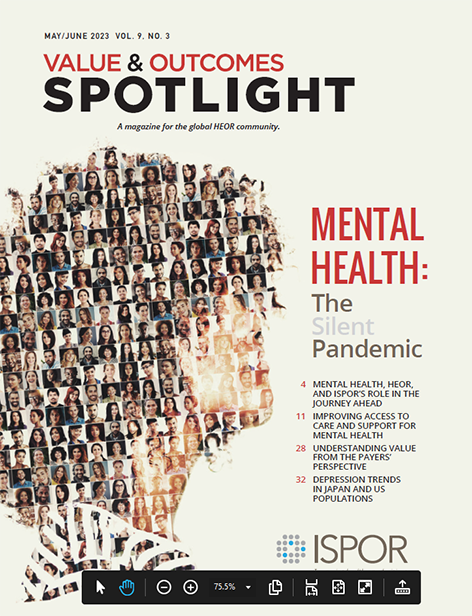Research Roundup
Research Roundup
Section Editor: Aakash Bipin Gandhi, BPharm, PhD, Methodologist Expert, RWD, Sanofi, Cambridge, MA, USA
WHO: pandemic sparked a push for global mental health transformation.
Kuehn BM. JAMA. 2022;328(1):5-7.
Summary
The article by Kuehn summarizes key messages from the World Health Organization’s (WHO) World Mental Health Report: Transforming Mental Health for All. The report discusses the need for transforming the delivery of mental health services that can result in improvement of human rights and foster the implementation of community-based mental health systems aimed at providing preventive care.
Relevance
The WHO report states that nearly 1 in 8 or approximately 1 billion people globally, live with a mental health disorder. Further, it emphasizes the role that the COVID-19 pandemic played in increasing awareness and acceptance surrounding mental health, especially given that the prevalence of conditions such as anxiety and depression increased by around 25% during this period. Despite these alarming numbers, governments around the world spend an average of 2% of their total healthcare budget on mental health care and prevention efforts. Lack of spending on mental health care using existing healthcare budgets is even more pronounced in low- to middle-income countries (~1%). This is concerning given that costs related to mental health are projected to continue rising and reach ~$6 trillion by 2030 globally. Overall, the report
by the WHO aims to be a catalyst for change and improvement in mental health care throughout the world. It emphasizes investing efforts to migrate mental health care from traditional long-term inpatient settings to community-based approaches that are integrated with local primary care centers. Additionally, it highlights the need for preventive measures, information-tracking systems, and investments in mental health research to mitigate any adverse consequences on individuals and society.
Impact of COVID-19 pandemic on mental health in the general population: a systematic review.
Xiong J, Lipsitz O, Nasri F, et al. J Affect Disord. 2020;277:55-64.
Summary
Xiong and colleagues present a systematic review that describes the effect of the COVID-19 pandemic on psychological outcomes and associated risk factors among the general population. The study found a high prevalence of symptoms related to anxiety (6.3% to 50.9%), depression (14.6% to 48.3%), posttraumatic stress disorder (7% to 53.8%), psychological distress (34.4% to 38%), and stress (8.1% to 81.9%) in the studied populations. A large degree of heterogeneity was observed across the included studies with prevalence numbers varying by country related to specific studies that were included in the review. The study also found that the major risk factors associated with mental health symptoms included female sex, age (≤ 40 years), history of chronic or psychiatric conditions, unemployment, and degree of exposure to social media and news.
Relevance
The COVID-19 pandemic drastically impacted mental health of the general population globally. For catastrophic events such as this in the future, government policies that aim to not only mitigate the risk of virus transmission but also take steps to deal with mental health effects on the population are required.
Addressing the mental health crisis.
Creaton J Nat Rev Cancer. 2021;21(1):1-2.
Summary
In this article, Creaton discusses the current state of working environments for researchers. It acknowledges the presence of a mental health crisis in the research community, describes probable causes, and proposes possible steps that can be taken to alleviate adverse consequences in this population. It discusses in detail the factors that may be harmful and damaging to a researcher’s mental health. These include daily pressures to progress with publishing research, maintaining a stable income, and working longer than expected hours within a hypercompetitive environment. Potential ways to alleviate these damaging effects would need intervention from both researchers and institutions that they may be affiliated with. Researchers can work on increasing their mental health literacy and discover opportunities to engage with fellow peers and mentors in the community to form a good support network. Institutions can help researchers by setting clear expectations for workload and deliverables to ensure a health work-life balance, as well ensure that any problems arising from systemic discrimination, bullying, and harassment are effectively brought to resolution.
Relevance
There is an increasing need to better manage working environments for researchers given their impacts on an individual’s mental health, productivity, and work quality. Both individual and organization-level changes are required to improve mental health outcomes among the research community.


